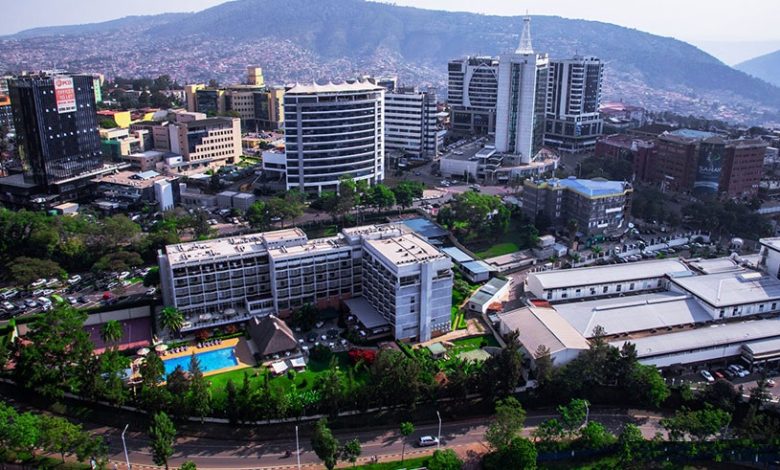Top 14 Cities in Africa to Explore

Africa is a continent of hidden gems, with numerous urban regions and secondary cities that are often overlooked by major international databases. From bustling metropolises to remote communities, Africa offers a diverse range of destinations that are waiting to be discovered. In this article, we will explore 15 of Africa’s most captivating cities and communities that are worth a visit. Whether you’re interested in culture, history, wildlife, or simply a leisurely vacation, Africa has something to offer for everyone.
Accra, Ghana: A Vibrant Hub on the West African Coast
Accra, the capital city of Ghana, is a bustling jewel on the West African coast that offers a unique and enriching tourist experience. With its fascinating blend of heritage and modernity, Accra has become a favorite destination for travelers looking for a diverse and all-encompassing vacation. The city is known for its vibrant nightlife, with an array of lively bars, clubs, and restaurants that pulse with infectious energy. Whether you’re a fan of Afrobeat rhythms or prefer the laid-back atmosphere of a beachside lounge, Accra caters to all tastes.
For history enthusiasts, Accra’s heritage is on full display with iconic landmarks like the Kwame Nkrumah Mausoleum, dedicated to Ghana’s first president, and the W.E.B. Du Bois Center, a tribute to the renowned African-American scholar. The city’s vibrant markets and bustling streets further immerse visitors in its rich cultural tapestry. Safety is also a hallmark of Accra, making it an ideal destination for travelers. The warmth and friendliness of the locals contribute to the overall sense of well-being.
Cape Town, South Africa: A City of Scenic Beauty and Rich History
Cape Town is often hailed as one of the most picturesque cities in Africa and beyond. Beyond its breathtaking natural setting, the city stands as the oldest in South Africa, dating back to its establishment in 1652. Cape Town’s allure extends beyond its scenic beauty, encompassing a captivating array of historical landmarks and museums. These cultural gems serve as a testament to the city’s rich heritage, offering visitors a compelling journey through time.
With its unique blend of natural wonders and historical treasures, Cape Town emerges as a destination that not only captivates the eye with its stunning landscapes but also invites exploration into the fascinating layers of its past. Partygoers will enjoy Cape Town’s vibrant nightlife, foodies will savor the seafood and wine, and outdoor enthusiasts will relish in Table Mountain and the stunning Cape Peninsula.
Zanzibar Stone Town, Tanzania: A Fusion of Tradition and Modernity
At the core of the famed ‘Spice Island’ of Zanzibar, lying just off the coast of mainland Tanzania, Stone Town stands as the beating heart and soul. This historic old quarter, nestled amidst the contemporary expanse of Zanzibar City, is a maze of slender alleys and 19th-century structures. Offering a unique immersion into urban Swahili culture, Stone Town is a hub where history and modernity converge seamlessly.
Visitors can explore the charming alleys, shop for environmentally conscious products crafted in Zanzibar, and indulge in sundowners and cosmopolitan cuisine along the atmospheric Indian Ocean waterfront. This enclave encapsulates the essence of Zanzibar’s rich heritage, allowing travelers to stroll through the past while embracing the vibrant pulse of contemporary life. Stone Town emerges as a captivating destination that seamlessly blends tradition and modernity, creating an unforgettable experience on the enchanting Spice Island.
Djenné, Mali: Africa’s Most Architecturally Harmonious Town
Djenné, a significant trade center dating back to the 15th century, stands as Africa’s most architecturally harmonious town. Situated on a seasonal island within the Bani River, a component of the Niger River Delta, Djenné preserves a wealth of Sahelian mud-and-stick architecture to this day. The epitome of this style is embodied by the Great Mosque of Djenné, considered the world’s largest and arguably the most exquisite adobe structure.
Today, Djenné continues to be a living testament to the historical significance of the region, showcasing the enduring beauty and cultural heritage reflected in its remarkable architectural treasures.
Essaouira, Morocco: Where Beaches and Ancient Medina Meet
Nestled along Morocco’s enchanting Atlantic coast, Essaouira stands out as one of Africa’s most picturesque cities. The destination seamlessly marries a breathtaking resort beach with a captivating ancient medina. Enclosed by the formidable cliff-top ramparts and fortifications of the 18th-century Skala de la Kasbah, the old medina adds a fascinating historical layer to the city’s scenic allure. Together, the stunning beachfront and the intriguing medina make this coastal gem a harmonious blend of natural beauty and rich cultural history.
Nairobi, Kenya: A Thriving Hub of Culture and Nature
Describing Nairobi as a thriving hub is entirely accurate. The Kenyan capital not only claims the title of the African continent’s fastest internet-connected city but also prides itself on hosting a national park merely 5 miles from its downtown. Nairobi’s ambiance is vibrant, featuring bustling neighborhoods, numerous unexpected hipster hangouts, and a captivating, affectionate culture.
For music enthusiasts, Nairobi is a paradise, with melodies permeating every corner, whether emanating from radio-equipped local matatu taxis, street buskers, or the myriad bars hosting Afro and jazz bands throughout the city.
Luanda, Angola: A City of Stunning Beaches and Rich Culture
The capital of Angola, Luanda, is gaining popularity among global tourists for its stunning beaches, thriving economy, and luxurious lifestyles. The city’s breathtaking scenery and rich culture, fueled by oil production, contribute to its exceptionally high living standards. History enthusiasts will find the city’s ancient past fascinating.
Key attractions include The Slavery Museum, The Armed Forces Museum, Independence Square, and the Mausoleum of Agostinho Neto. The renowned Bay of Luanda, with its clear waters and pristine beaches, provides both locals and visitors with an ideal retreat to unwind amid their busy travels, making it one of the most sought-after destinations in the entire country.
Axum, Ethiopia: A Living Legacy of Ancient Splendor
Axum stands as the longest continuously inhabited city in sub-Saharan Africa. Once the capital of the Axumite Empire, its origins trace back to the era of the Queen of Sheba, who wielded control over a vital trade route from the Sudanese Nile to Yemen across the Red Sea. Presently, Axum is adorned with the remnants of its grandeur, featuring crumbling palaces, towering stelae, and other artifacts from its historical zenith.
The Maryam Tsion Church, founded in the 4th century, holds a central role as the birthplace of Ethiopian Christianity.
Agadir, Morocco: Rebuilt Beauty
It’s astonishing to consider that Agadir, in its entirety, was devastated by an earthquake in 1960, compelling a meticulous reconstruction adhering to specific seismic standards. The region enjoys a consistently pleasant climate throughout the year, making it an unquestionable choice for those seeking a visually appealing travel destination.
With its expansive sandy beaches, diverse water-based activities, and an opulent animal park, the city caters to a wide range of interests for both the young and the old. The cultural tapestry of this Moroccan gem is vibrant, highlighted by the annual Timitar Festival that celebrates Berber music, culture, and traditions, taking place in the city every summer.
Luxor, Egypt: A Window into Ancient Egypt
Recognized as a UNESCO World Heritage Site in 1979, Luxor, located on the east bank of the Nile River in southern Egypt, boasts a rich historical legacy. Between the 16th and 11th centuries BCE, it served as the site for the ancient city of Thebes, serving as the political and religious capital of Egypt.
Today, Luxor is home to numerous ancient temples, tombs, and archaeological sites, including the iconic Valley of the Kings and the Temple of Karnak. Visitors can immerse themselves in the wonders of ancient Egypt while enjoying the modern amenities and comforts of a vibrant city.
Dar es Salaam, Tanzania: The Gateway to Serengeti
Dar es Salaam, the largest city in Tanzania, serves as the gateway to the world-famous Serengeti National Park and the stunning Zanzibar Archipelago. The city itself offers a vibrant mix of cultures, with a bustling harbor, lively markets, and a thriving arts scene.
Visitors can explore the National Museum, which houses a collection of archaeological and ethnographic artifacts, or simply relax on the city’s beautiful beaches. Dar es Salaam is the perfect starting point for an unforgettable African adventure.
Island of Mozambique, Mozambique: A Living UNESCO World Heritage Site
The Island of Mozambique, located off the northern coast of Mozambique, is a living testament to the country’s rich history and cultural heritage. Designated as a UNESCO World Heritage Site, the island features a unique blend of African, Arab, and European influences, reflected in its architecture, cuisine, and traditions.
Visitors can explore the island’s historic buildings, including the Chapel of Nossa Senhora de Baluarte, the oldest European building in the southern hemisphere. The island’s pristine beaches and crystal-clear waters also make it a popular destination for snorkeling, diving, and other water-based activities.
Kigali, Rwanda: A City of Progress and Reconciliation
Kigali, the capital city of Rwanda, has undergone a remarkable transformation in recent years, emerging as a vibrant and progressive metropolis. The city is known for its cleanliness, safety, and efficient infrastructure, making it a pleasant and welcoming destination for travelers.
Kigali is also a city of reconciliation, with numerous memorials and museums dedicated to the country’s tragic history. Visitors can learn about the 1994 genocide and witness the remarkable resilience and unity of the Rwandan people.
Lamu, Kenya: A Timeless Swahili Town
Lamu, a small island off the coast of Kenya, is a timeless Swahili town that has retained its traditional charm and character. Designated as a UNESCO World Heritage Site, Lamu’s narrow streets, coral stone buildings, and vibrant markets offer a glimpse into the region’s rich history and cultural heritage.
Visitors can explore the town’s historic mosques, visit the Lamu Museum, or simply relax on the island’s beautiful beaches.



